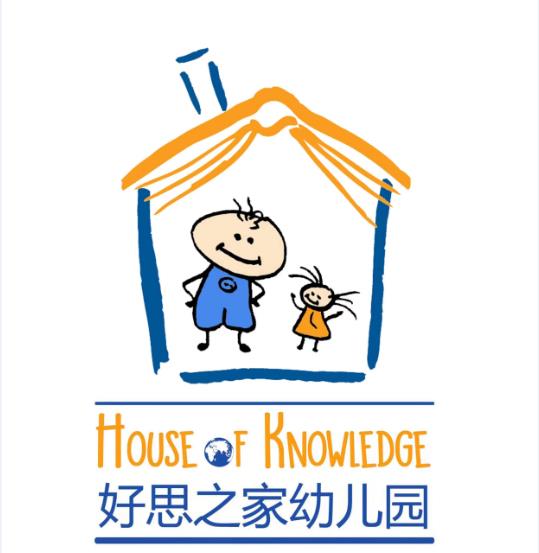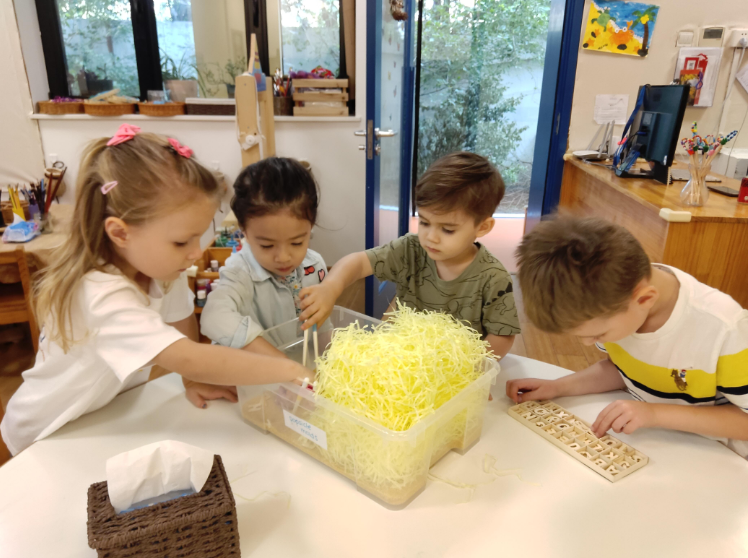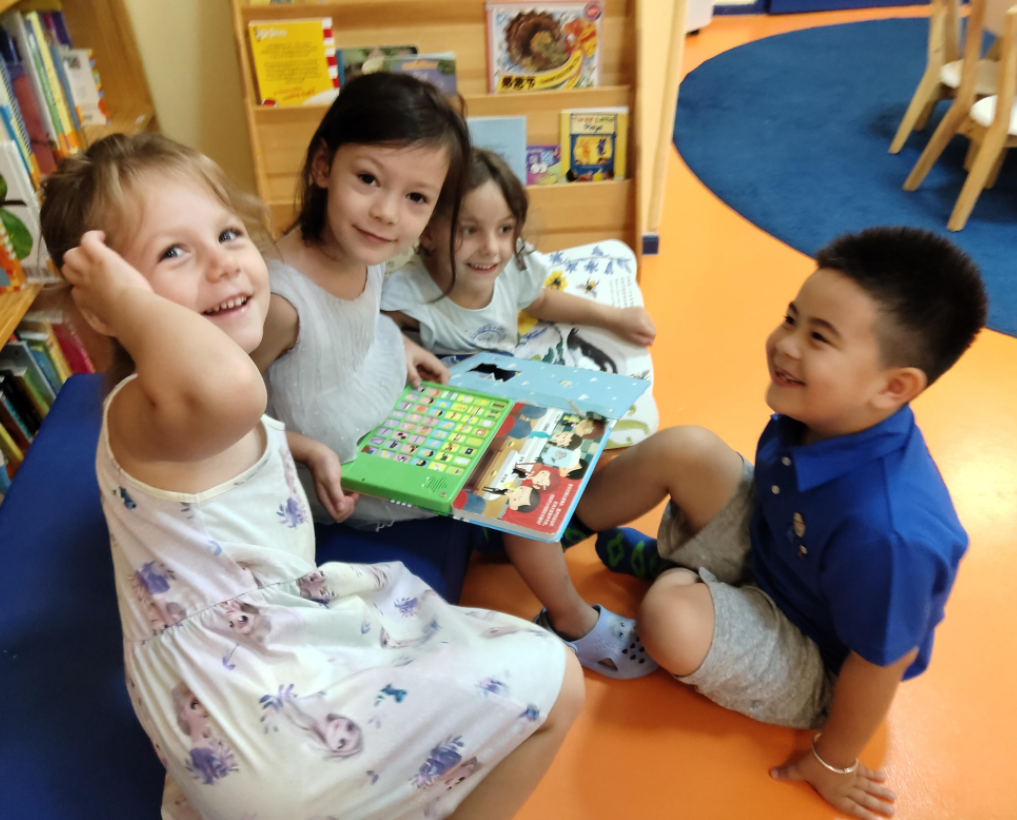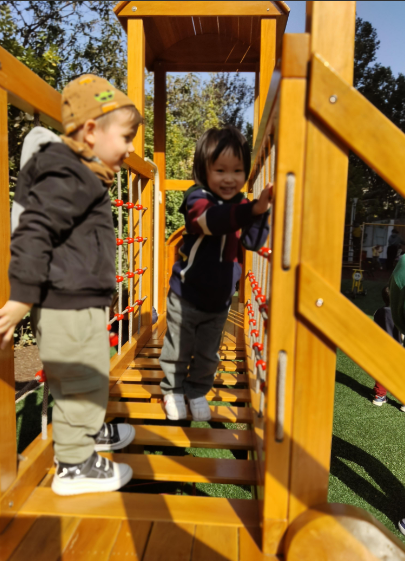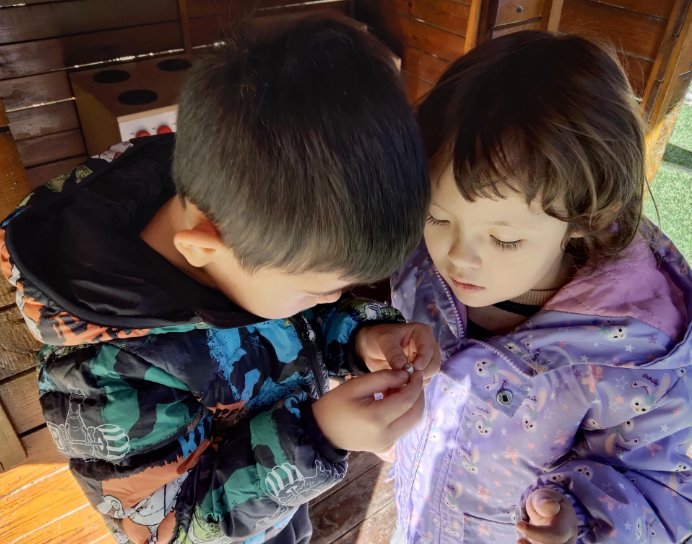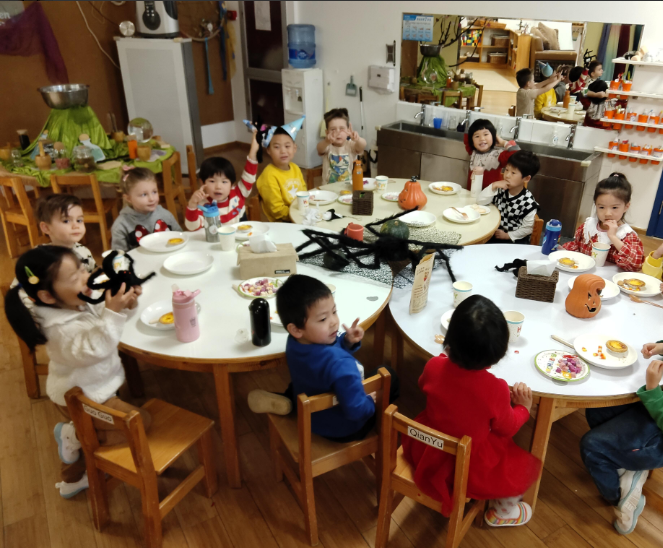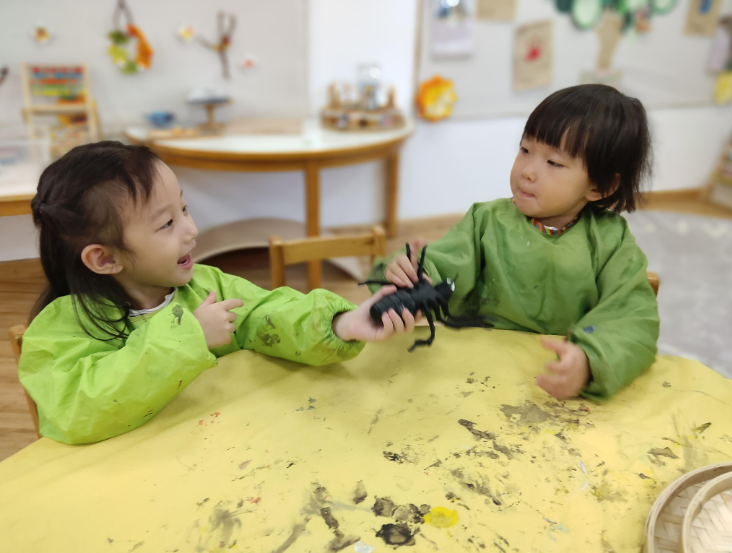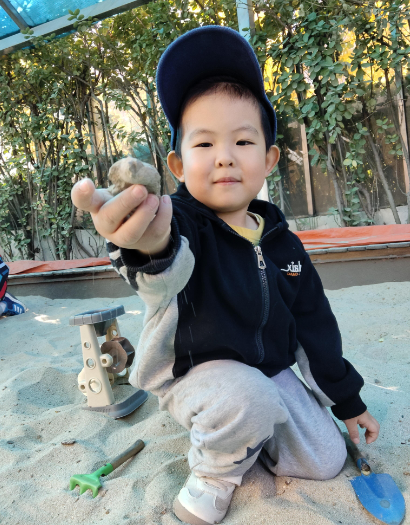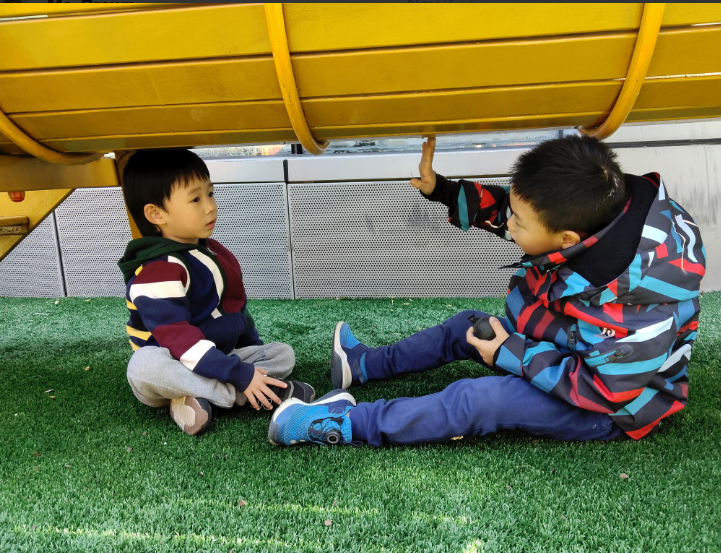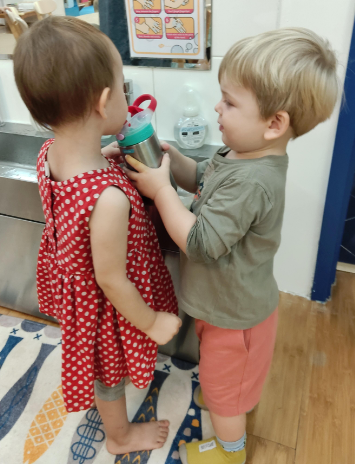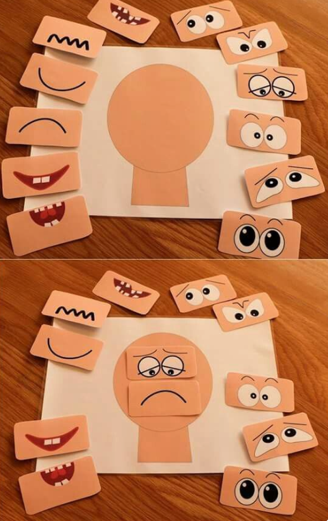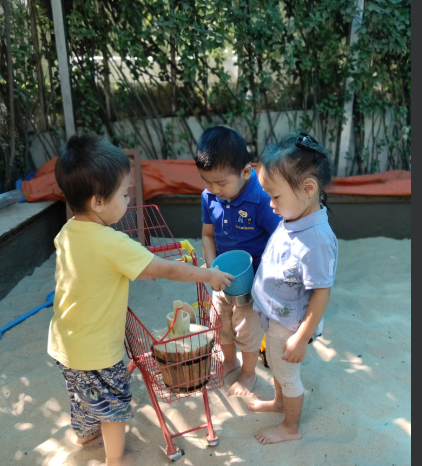As parents, we always want to give our children the most love.
How to love our children? The answers may vary a lot, but when it comes to this, we believe all parents would agree: to enable our children to receive good education which will benefit them for their entire life is the highest form of love.
Over the past 15 years, House of Knowledge has offered premium international Early Years education to more than one thousand children aged 18 months to 6 years both locally and from around the world.
Recently, the family-popular magazine “TimeOut Family” had a chance to interview Mr. Farshad Danicek, the school founder of House of Knowledge International Kindergarten, and in this interview he shared his thoughts and perspectives about what is “Empathy”.
When it comes to “Empathy”, most of us are familiar with the word.
With the popularization of psychological knowledge and the public’s attention to people’s overall mental health, empathy is widely acknowledged as a good personal trait and ability that everyone needs when getting along with people or having social interactions with each other nowadays.
Empathy, is an ability to think and act in other people’s situations so as to feel and understand others’ perspectives, feelings, and emotions. Empathy can also be subdivided into Affective Empathy (which refers to the perception and experience of other people’s emotions), and Cognitive Empathy (which focuses on understanding other people’s perspectives and perceptions).
Today, we are honoured and very pleased to release what our founder, Mr. Farshad Danicek, has shared during his interview with TimeOut Family magazine. Follow us and let’s take a look now! 
School Founder Mr. Farshad Danicek
Mr. Farshad Danicek, M.Ed.,School Founder and Head of Program Development at House of Knowledge. Farshad has been working in the Early Years Education industry for over 30 years and during the past 16 years, Farshad has adapted the Reggio Emilia approach to coincide with, and compliment with Chinese learning styles that combines the best of eastern and western cultures.
Introduction
Caring is Sharing. Empathy is an important trait for young children to nurture.
We are honored to invite Mr. Farshad Danicek to share his thoughts towards this “Empathy” topic and share his very valuable and practical advice for parents that help their children become more empathetic.
Q1: Why is empathy important in a child?
Empathy is a core value and it can be defined as an ability to notice or realize the state of mind of another person and sympathize with their feelings.
Gaining empathy is a process based on cognitive abilities and it is an important part of a child’s emotional and social development.
It is important because on one hand they learn to understand the feelings of fellow peers and “re-act” accordingly. On the other hand, being empathetic also helps to anticipate someone’s action and “act” in the right manner.
For example: A 2-year-old takes intentionally away the toy from someone and sees how this child becomes upset and maybe starts crying.
An older and strong empathetic child would not take the toy away in the first place, because they know how the other one is going to feel about it. They rather might offer to trade another toy in exchange or asks to join and play together.
Q2: When does a child start to show empathy?
The development of Empathy is a long process and starts from the child’s ability to change its perspective away from itself to other people, from self-centred to gaining social awareness.
Sometime between 18 to 36 months a child starts to recognize, that its own feelings are different from the feelings of others. Here you can see the first actions of comforting someone, e.g., if they see a sad person they might hug this person or hand over their teddy bear.
Over time children not only react to the different feelings of others (happiness, distress, etc.), now they also want to understand the cause of it.
Q3: Where does a child typically learn empathy from? And, is it important for parents to teach this trait – can it be learned naturally?
In general, you could say, that the development of Empathy depends always on the first emotional experiences a child is making during their early years.
Parents or close caregivers are taking on a kind of role mode aspect for their children. They set examples of empathetic behavior, which a child then adopts.
Teaching empathy is also connected to the language parents or caregivers are using. An appropriate and emotional language with the right tone will help here. And note, Daddies are therefore as important as mothers; they also should show empathetic behavior and be a good role model.
Q4: What are some traits that show that a child needs to learn empathy?
Some behaviour could have a destructive impact on other children and adults and if you see a repeating pattern here, that might indicate a lack of empathy.
For example a child who constantly takes away toys from others or disturbs others during their play, maybe even being amused that other children get upset as a result of their actions.
But some children also cannot read the facial expressions and gestures of other people and then react incorrectly in some situations.
Q5: Could you please give us one activity that parents can practice empathy with their children at home?
Please note, if you want to support the core value empathy you need to be aware, that children react emotionally differently on the same situation. For example your pet died at home, here some children are crying very much while others get upset and angry.
In general parents should always respect the emotions of their children and show them that emotions are also important to them, but also verbalize emotions openly.
Here an example of a fun activity to talk about emotions as a starting point to teach empathy, which we also do at our Kindergarten.
Or, if your child had an argument with another student, then ask your child how it came to it and how she/he feels, but also ask how the other student might feel now. 
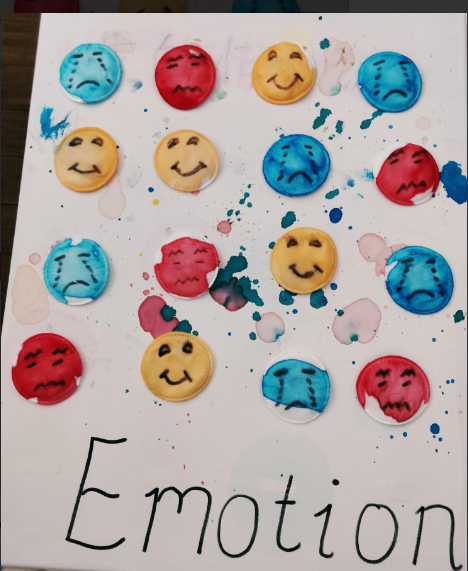
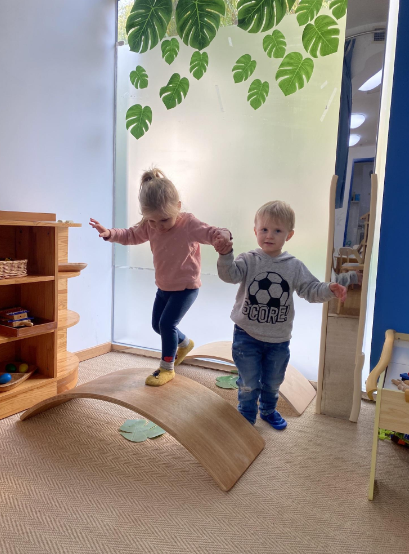
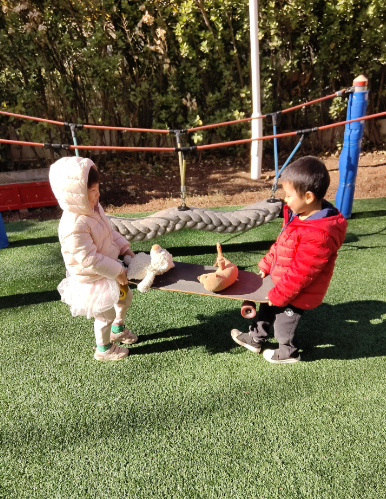
Summary
As one of the most pioneering and practitioners among all kindergartens in Beijing throughout these 15 years, Empathy has been one of the ten Core Values at House of Knowledge which we implement in our high-quality educational programs to children on a daily basis on campus- we want to nurture our children with good personal traits and to support the children to succeed in the 21st century when they grow up in a long run.
We really appreciate Mr. Farshad Danicek’s sharing his thoughts on Empathy and all the tips and advice that were given to the parents.
If you would like to know more about our educational programs and philosophy at House of Knowledge, we highly recommend you to reserve to visit our campus and learn more about us. We look forward to seeing you soon!
扫二维码,参观我们的园区!
